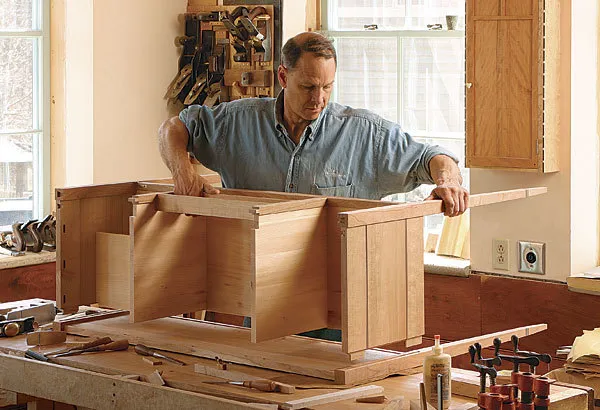Use thin parts and innovative joinery to make light, durable pieces
I think many wood workers forget how strong wood truly is, especially the hardwoods. This leads them to make furniture that is unintentionally stout and heavy. Muscular furniture can be attractive, but I prefer the grace of pieces that are visually more delicate. To achieve that appearance, I take advantage of the wood’s strength, designing in a way that pares down the physical and visual weight of a piece without compromising its strength. It’s an economical way of building where each joint and every part is used to its full potential to strengthen the piece as a whole.
Through the years I’ve developed several strategies for building light and strong. One way to shed visual weight without losing strength is to make a part thin and wide rather than thick. You can also minimize the number of parts in a piece by making one part do many jobs rather than having many parts that do one job each. Or you can replace one big part with two or more smaller ones. Another approach is to redesign the joinery to be stronger—make the top and bottom shoulders of a tenon smaller, for example. I’ll explain these strategies and a few others. Of course, I don’t use every one in every piece of furniture that I make, so I’ll show you four different pieces and explain how I was able to make each one more delicate and graceful without compromising its strength.
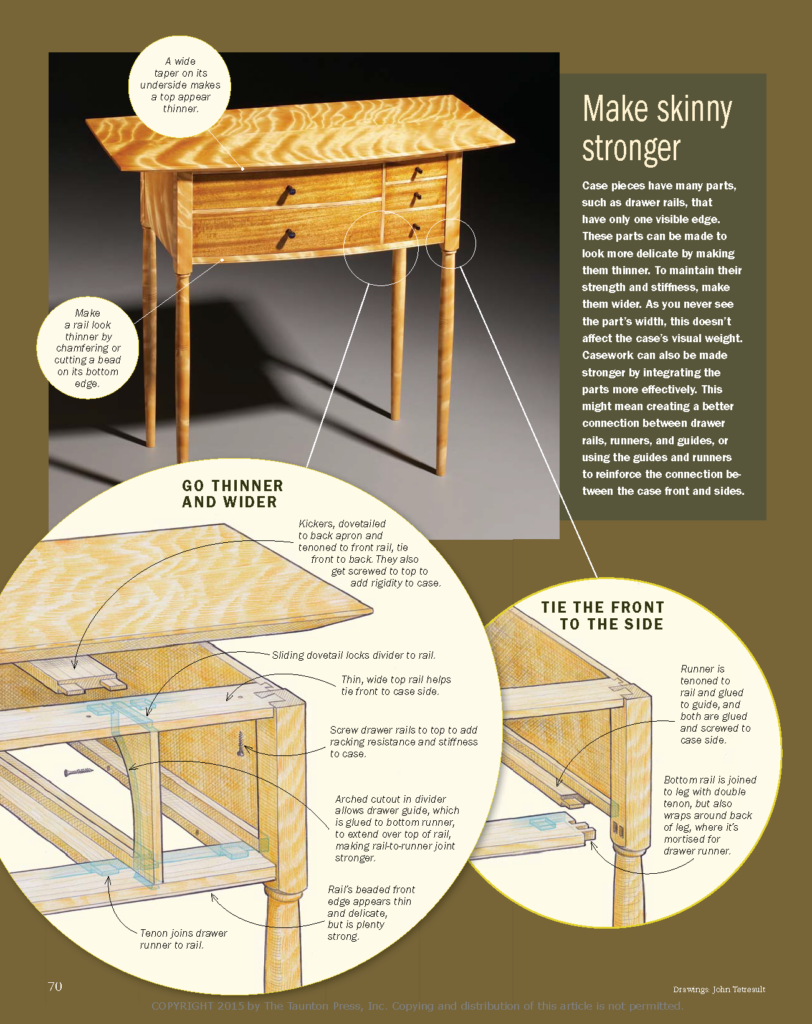
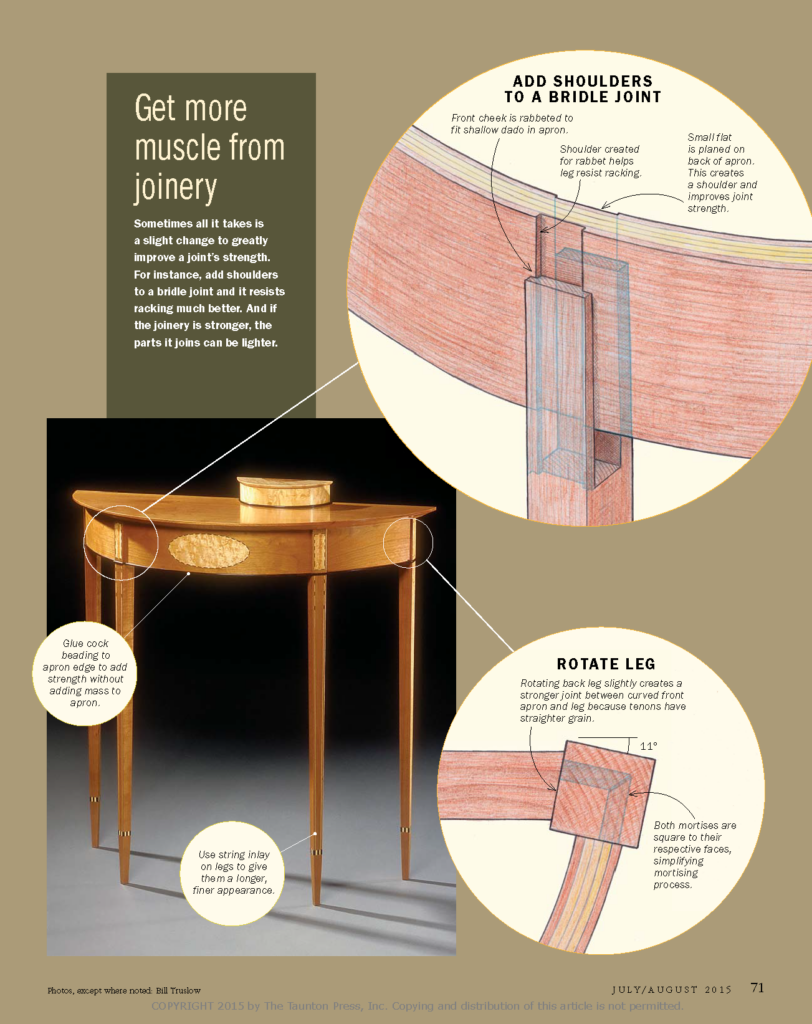
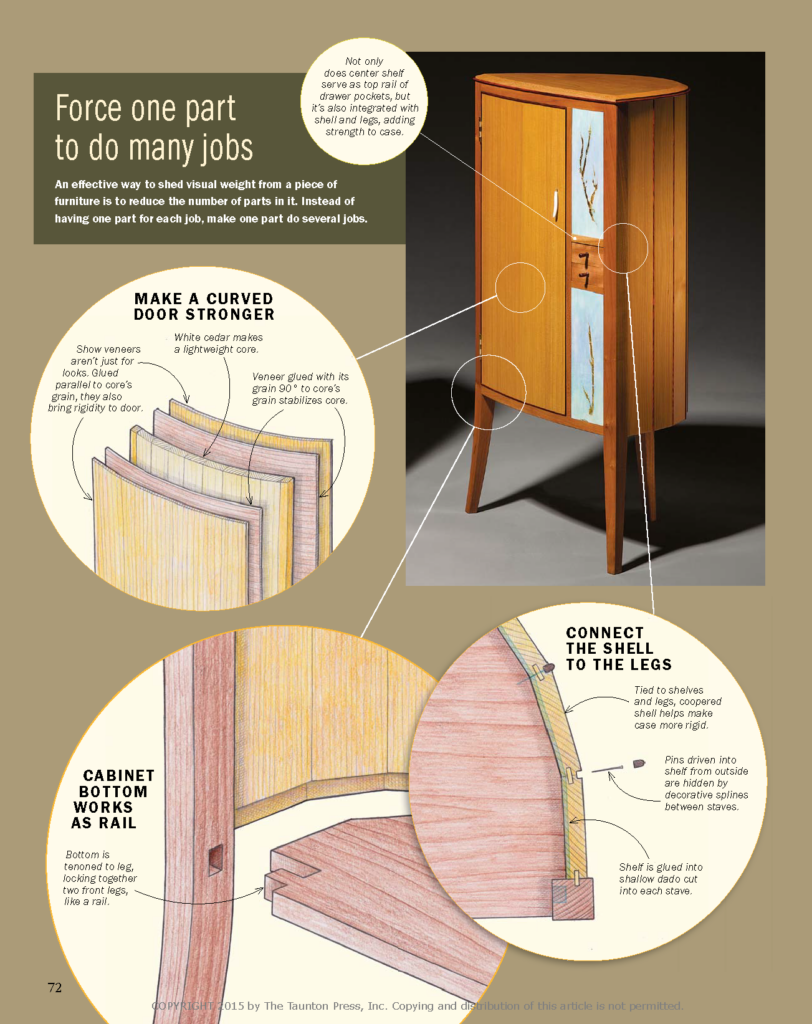
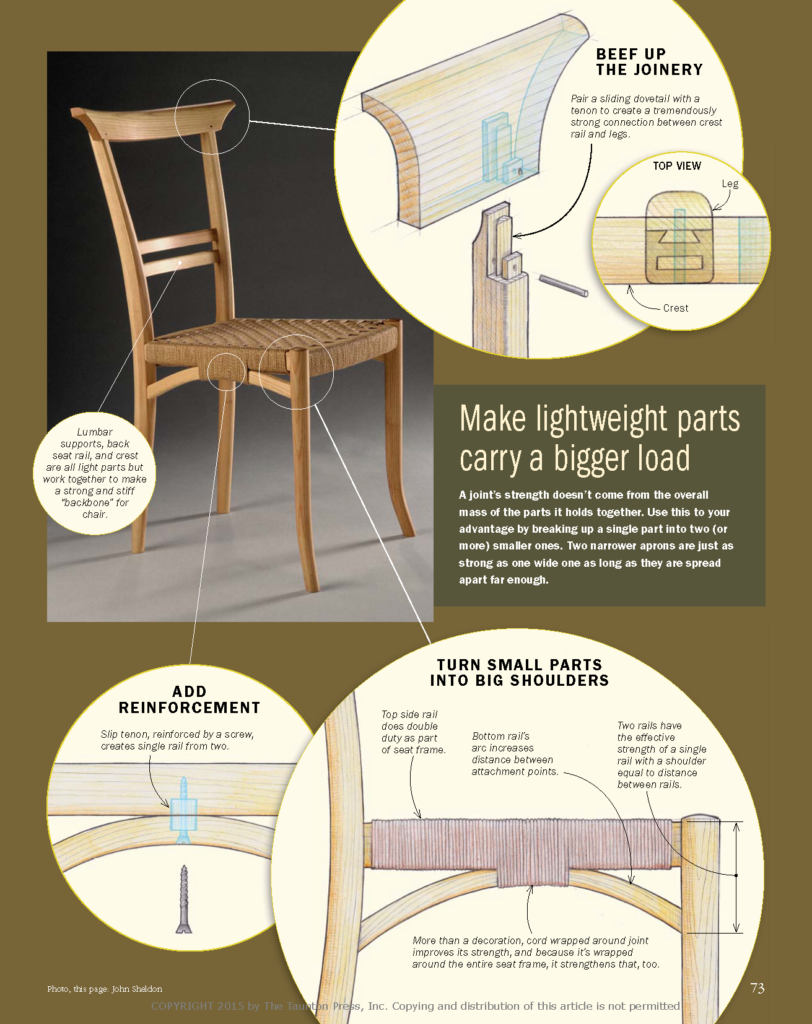
Hack, Garrett. “Build Lighter, Stronger Furniture.” FineWoodworking, The Taunton Press, Inc., 3 Jan. 2018, https://www.finewoodworking.com/2015/05/27/build-lighter-stronger-furniture.
Although wood is a prime material for furniture creation and a material I’d like to explore, I worry about the weight. A requirement for furniture in the DPP lab space is that it is easily movable. This short article from Fine Woodworking shows me ways that I could design wood furniture to be light, but still strong. These images are informative and inspiring to me as I begin to learn more about woodworking.

